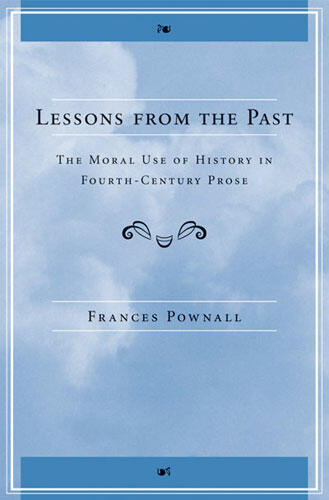Lessons from the Past
The Moral Use of History in Fourth-Century Prose
Deepens our understanding of the Greek tendency to view the past as a source for contemporary moral lessons
Description
Because of the didactic nature of the historical genre, many scholars ancient and modern have seen connections between history and rhetoric. So far, discussion has centered on fifth-century authors -- Herodotus and Thucydides, along with the sophists and early philosophers. Pownall extends the focus of this discussion into an important period. By focusing on key intellectuals and historians of the fourth century (Plato and the major historians -- Xenophon, Ephorus, and Theopompus), she examines how these prose writers created an aristocratic version of the past as an alternative to the democratic version of the oratorical tradition.
Frances Pownall is Professor of History and Classics, University of Alberta.

